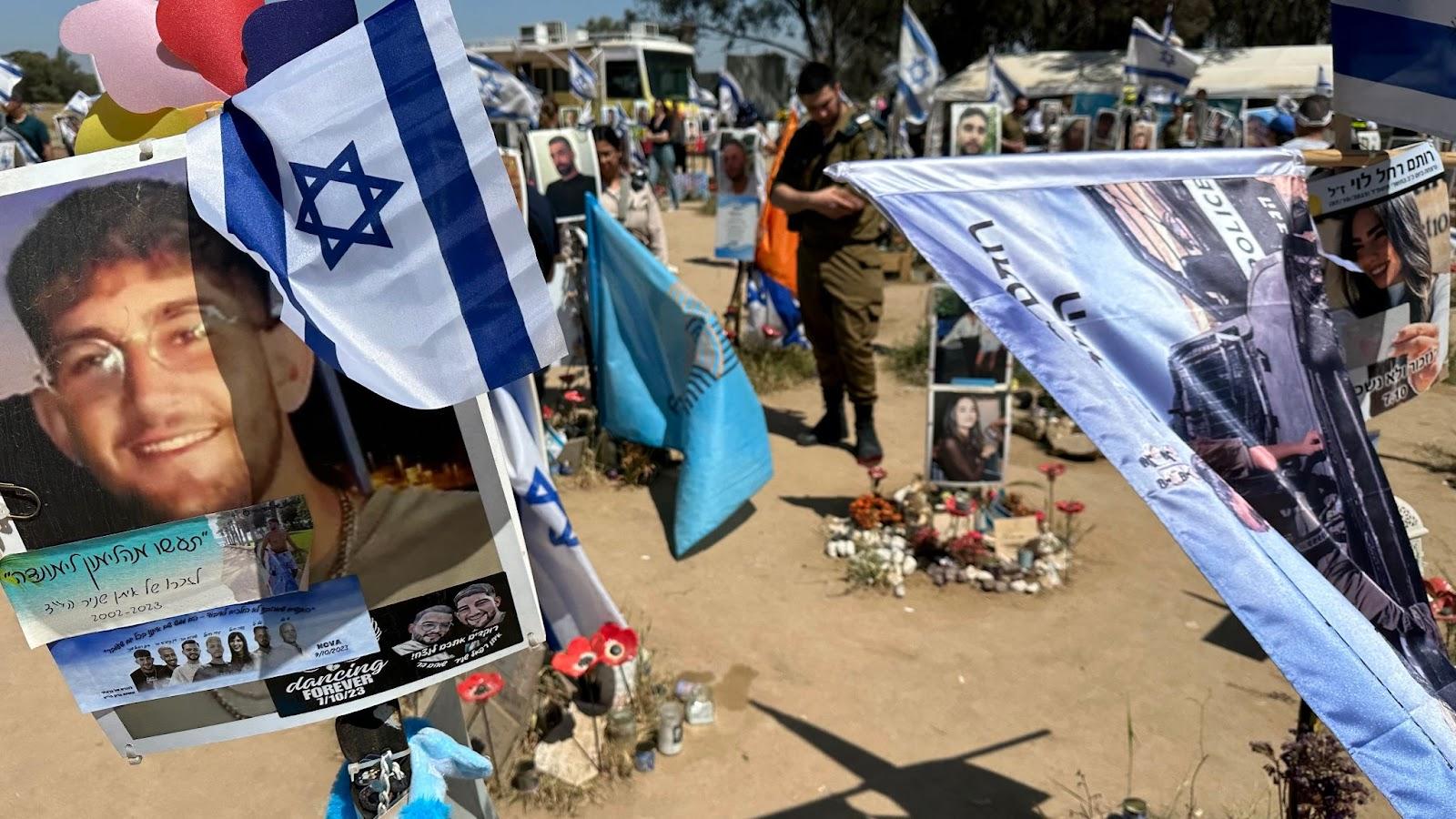This month marks six months since the deadly attacks on southern Israel, when Hamas militants entered the country on Oct. 7, leaving about 1,200 people dead and taking about 250 hostages.
The attacks took place on the grounds of a music festival in the town of Sderot and the southern village of Aza, among other areas.
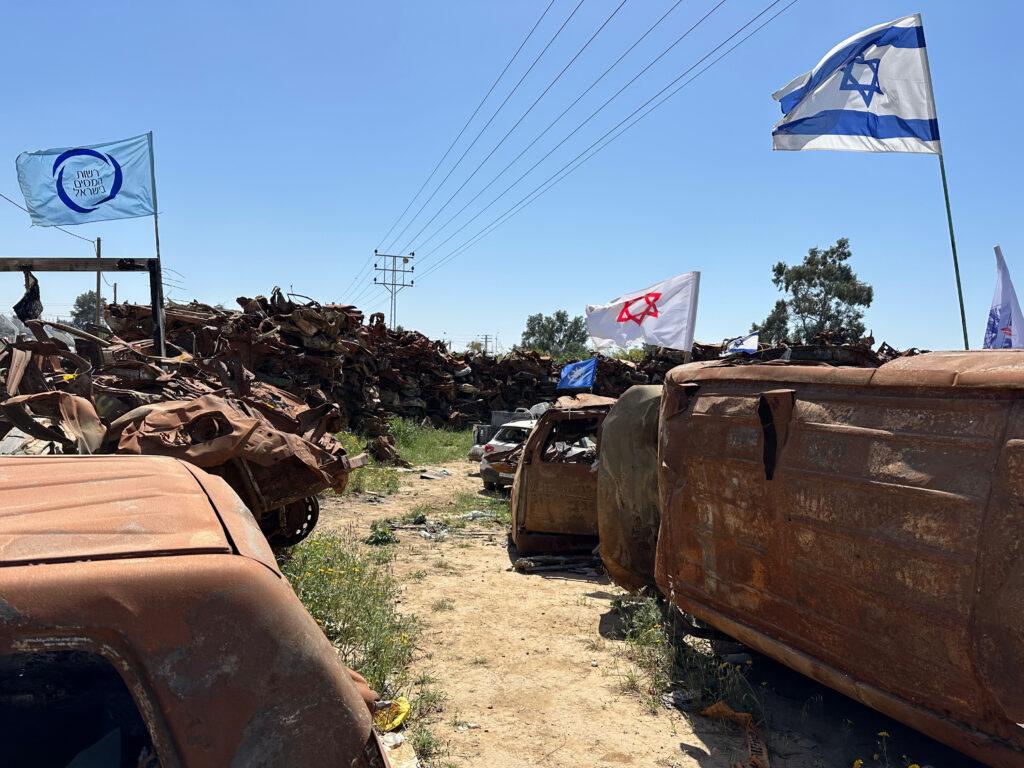
About 100 hostages were released after negotiations with Hamas last November, leaving about 130 in captivity — Israel says about a quarter of those are dead.
Six months later, Israelis continue to grapple with the loss and trauma of these deadly attacks. The World visited each of these three sites in Israel to get a sense of how Israelis now are living with grief amid the reality of an ongoing war against Hamas in Gaza.
Most of the world first heard about these attacks with terrifying videos and images of Hamas militants who broke through a border barrier and infiltrated the Nova music festival, where hundreds had gathered for the weekend.
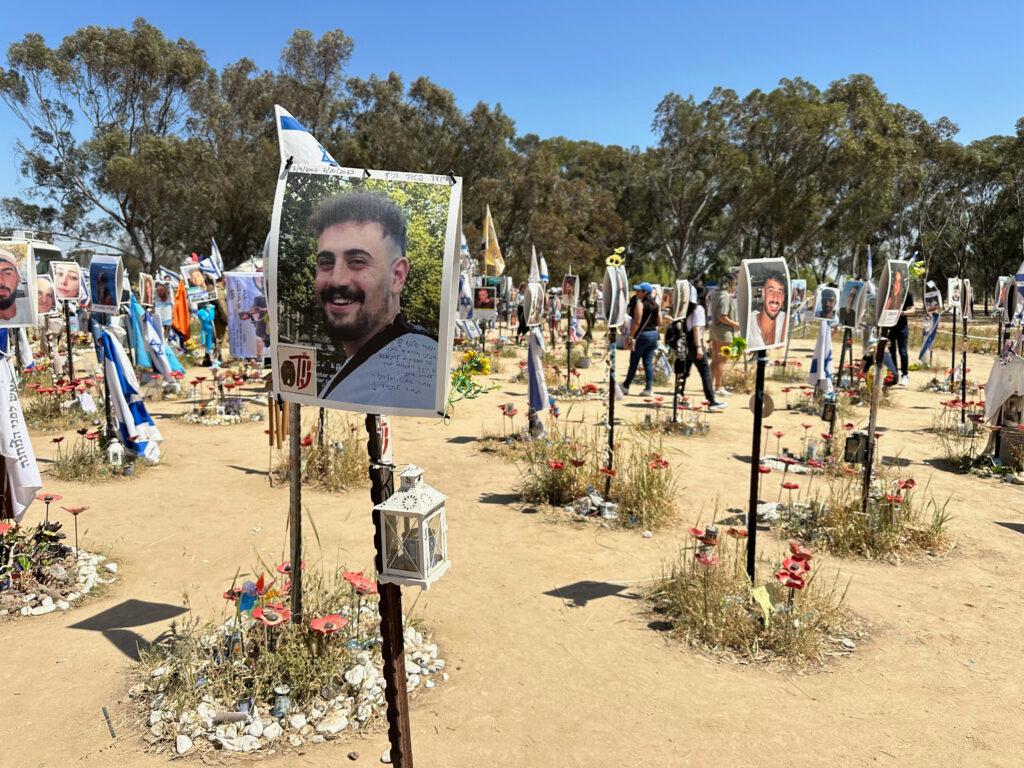
Today, memorial posts bearing the photographs of the victims who were either killed or taken hostage remain.
On the day The World’s team visited the site, a family dressed in white was standing next to one of the posts.
A man holding a cellphone with relatives on the line led them all in prayer.
‘I’m still in shock’
About 15 miles north of the festival site is the city of Sderot, which is located on the Israeli side of the northern edge of the Gaza Strip.
Hamas attackers also breached the fence here, killing about 50 civilians. They took over the police station and killed 20 officers before Israeli soldiers showed up. Today, that police station is gone. The battle gutted the building and subsequently demolished it.
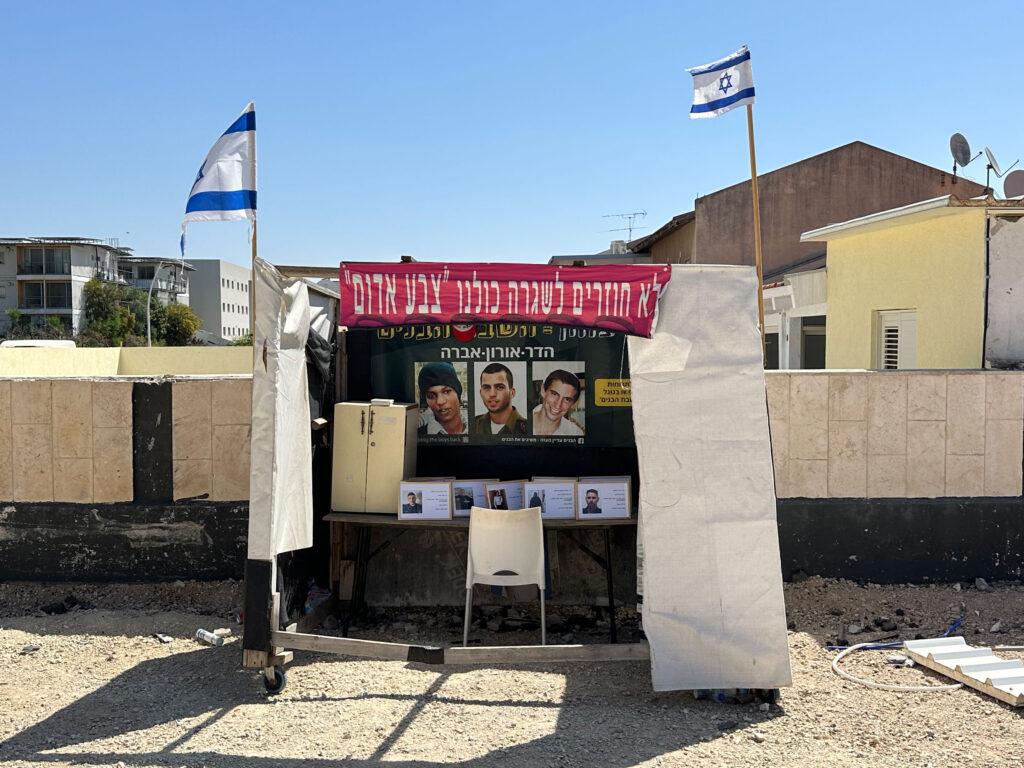
Recently, about two dozen Israeli reservists visited the front lines and listened to a guide about what happened that day. They stood around a memorial with hundreds of candles, paying close attention to the details.
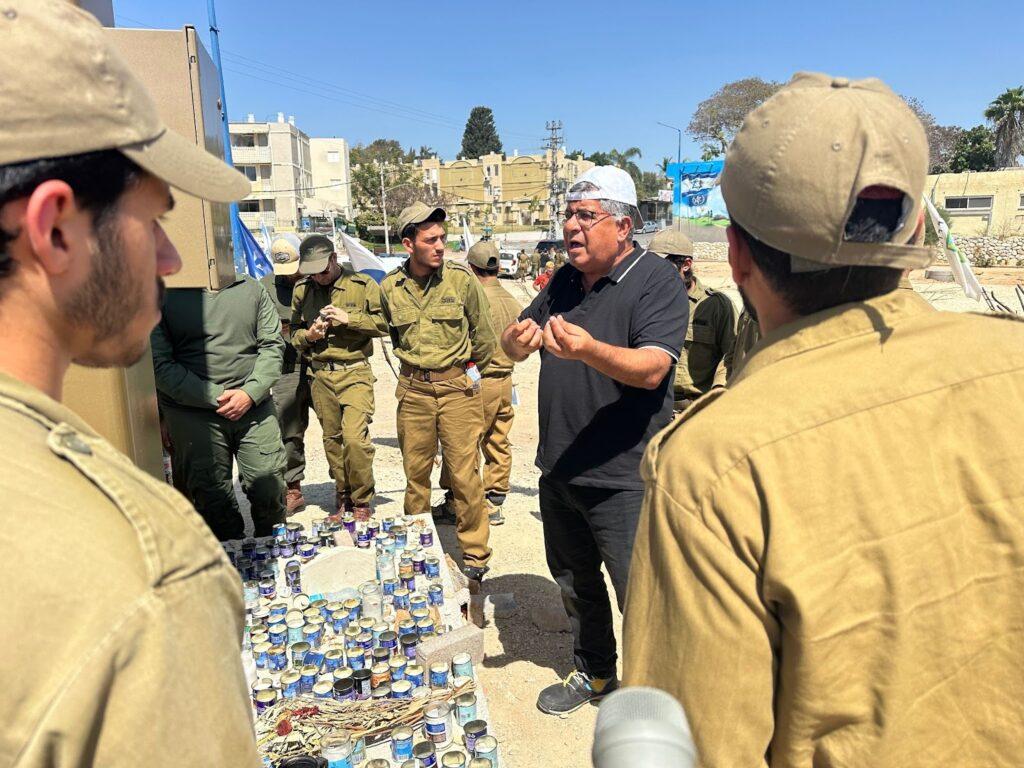
Sderot has long been the target of frequent rocket attacks by Hamas in Gaza.
Corners of buildings have been sheared off by rockets, and school buildings are fortified by thick, concrete rocket-proof roofs. Kids play in a playground dotted with decadesold bomb shelters, and the thud of explosions in Gaza can be heard just a few miles away.
In the days after the attacks, about 90% of Sderot’s residents left, spread out in hotels across the country.
Hamas continued to fire rockets into the city, but as Israel’s war against Hamas in Gaza continues, the rockets have mostly died down and many residents have returned.
“I had a lot of customers from the area,” said Shimon Buskila, the owner of Shupan Hair Salon in Sderot. Buskila said he knew a lot of people who were either killed that day or abducted.

“I’m still in shock because since I returned, I keep learning about more victims,” Shimon said as he cut the hair of another resident who moved back.
It’s the young people he worries about most, Shimon said. “They’re traumatized,” he said, adding, “My wife is post-traumatic. So are my kids.”
It took his family a month longer than him to return to Sderot.
“But things here are mostly back to normal, and we’re confident that we will prevail and win,” he said.
‘Unsustainable’
In Kibbutz Kfar Azza, about 10 minutes down the road, any sense of normalcy is nonexistent.
Ralph Lewinsohn – originally from Namibia – has been a resident of the kibbutz for 43 years. Lewinsohn said he and his wife survived the attack by hunkering down in a bomb shelter for 20 hours. The Israeli military finally extracted them along with a number of other kibbutz survivors.
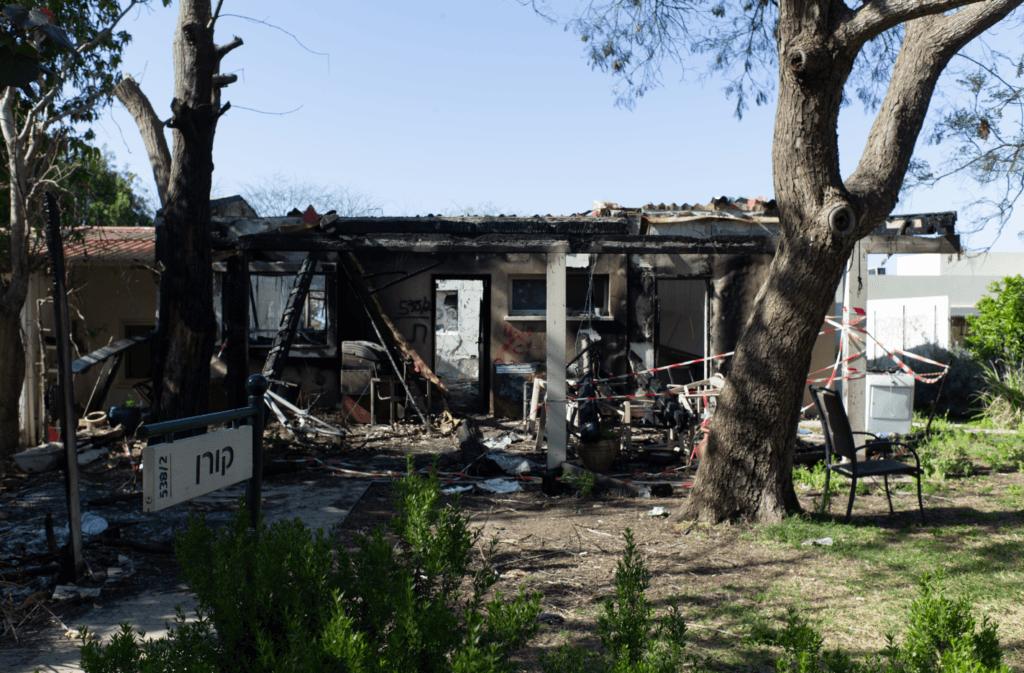
It was only then that Lewinsohn understood what had happened.While he and his wife were being rescued, they had no information about their children. He pointed to the house where his daughter was when Hamas attacked.
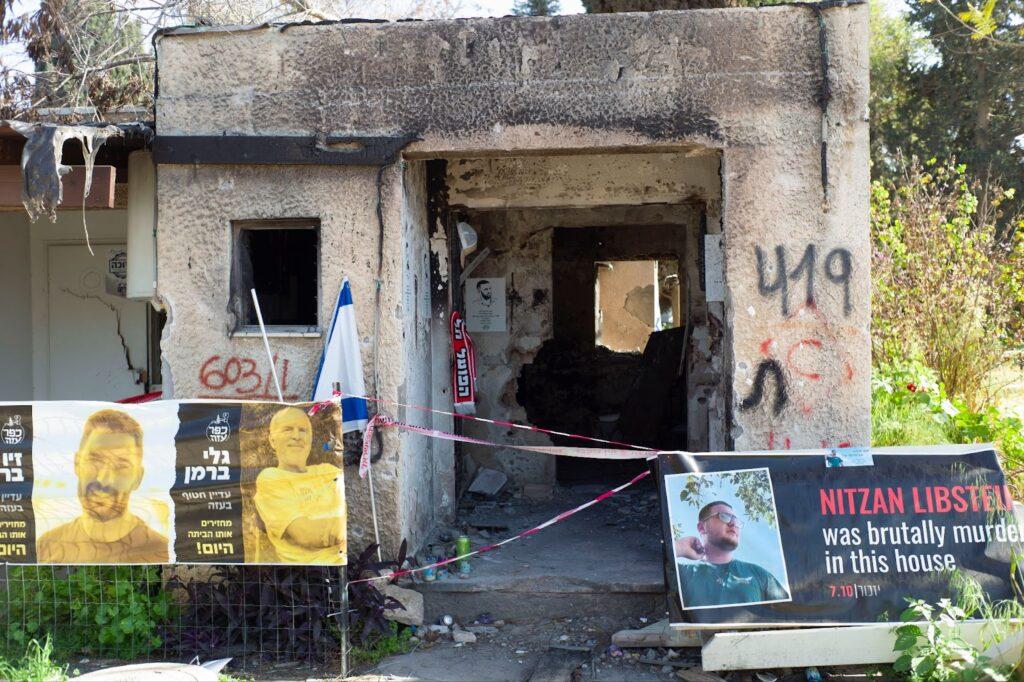
Lewinsohn has since managed to make contact with his daughter, he said.
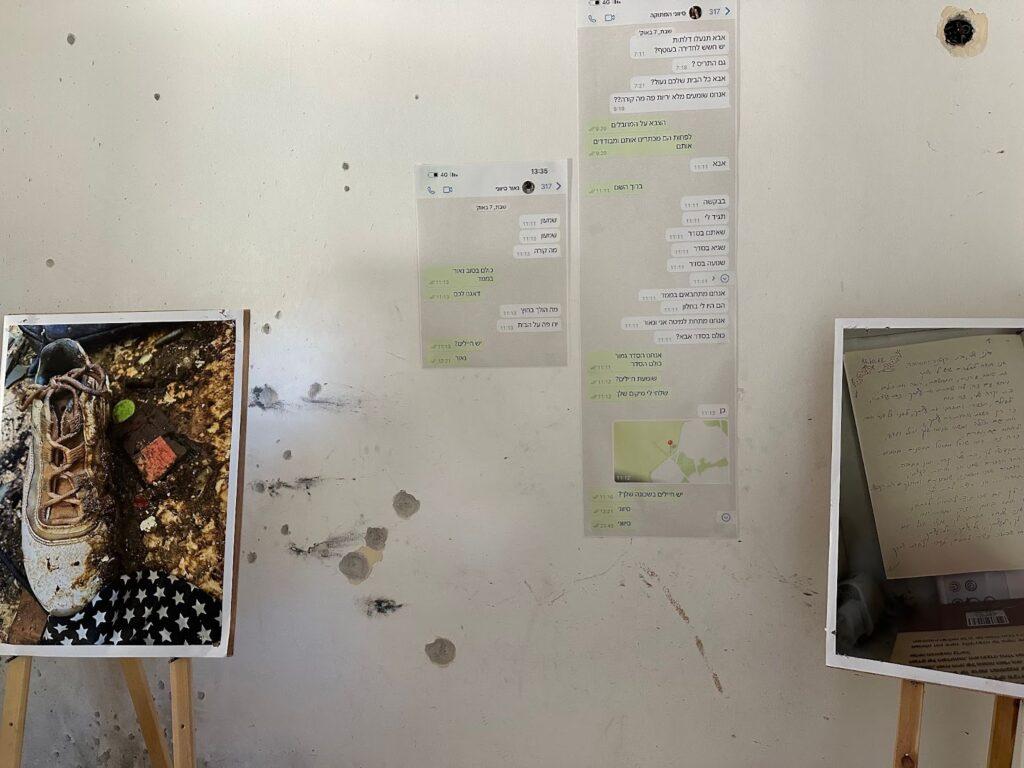
At least 50 people in Kfar Aza were killed that day. Before the attack, about 400 people lived here. Since then, only three have returned.
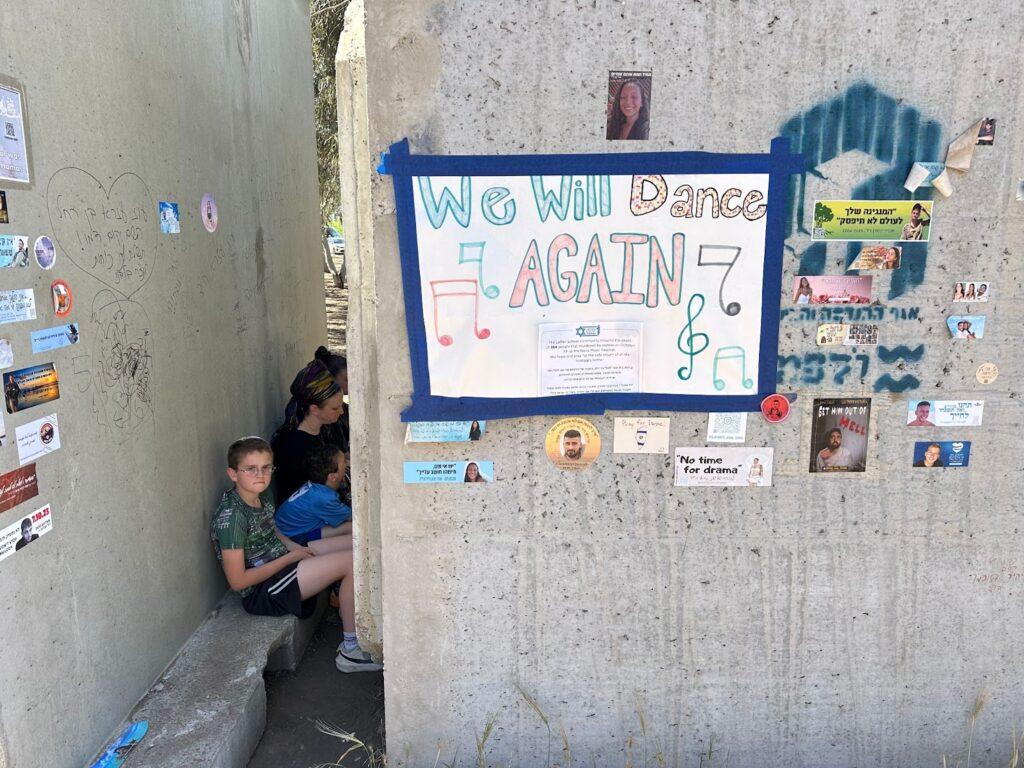
Many of the residents of Kfar Aza are now living in hotels far from home.
For many, Lewinsohn said, it’s a life that is not sustainable.
